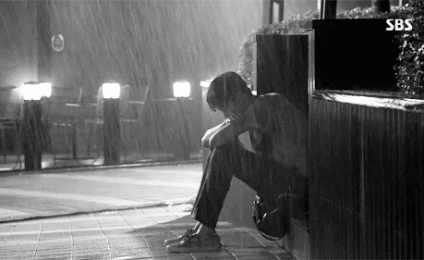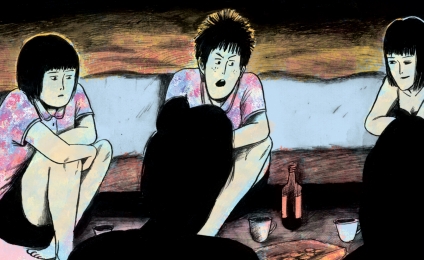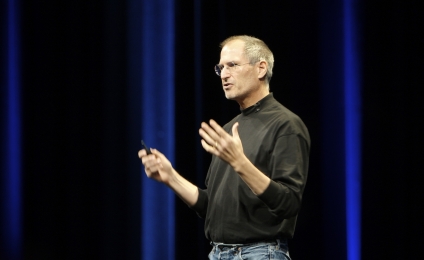When most people hear the word popularity, their minds jump straight to the high school cafeteria. You know the scene: cliques forming like clockwork, prom queens ruling the social schedule, and kids quietly counting how many birthday invites they did—or didn’t—get. It all seems so teenage, so fleeting… so irrelevant once we grow up. Right?
Well, not exactly.
It turns out, popularity doesn’t just vanish after graduation. In fact, far from being a relic of our adolescent years, the way we’re perceived by others—the sense of likability, emotional warmth, or connection we spark—continues to influence our lives in subtle but powerful ways. And we’re not just talking about getting more “likes” on social media or having a packed birthday dinner. The kind of popularity we carry into adulthood can affect our relationships, emotional resilience, mental health, and, yes—even our lifespan.
Recent psychological research is challenging outdated stereotypes, showing that popularity isn't shallow at all. When redefined correctly, it becomes a meaningful factor in how happy, fulfilled, and socially connected we are. The kicker? Not all popularity is created equal. And chasing the wrong kind might actually leave you lonelier than ever.
What Popularity Really Means (And Why You Should Rethink It)
Think popularity is just a teenage obsession? Think again.
Sure, the term might bring back memories of yearbook superlatives and MySpace friend counts, but researchers have found that popularity stays with us long after we’ve outgrown our locker days. The concept goes deeper than surface-level charm—it stems from how people respond to us emotionally, how we make others feel, and how easily we create rapport. And believe it or not, those dynamics often get set in motion during childhood.
Back in the 1980s, developmental psychologists introduced a method of categorizing children based on how much their classmates liked or disliked them. These categories—Popular, Rejected, Average, Controversial, and Neglected—are still used today, and, according to psychology professor Mitch Prinstein, many people tend to land in the same category throughout life. That’s right—how we were perceived as kids can cast a shadow on our adult relationships, even in new environments.
In his book Popular: Why Being Liked Is the Secret to Greater Success and Happiness, Prinstein dives into decades of research revealing that popularity often trumps childhood intelligence, family circumstances, or even early emotional health in predicting how happy people turn out to be.
But there's a twist. There isn’t just one kind of popularity. There’s the kind that fills you with genuine connections—and the kind that’s all flash, no substance. If you spend your life chasing the wrong kind? You might find yourself surrounded by people, yet still feel completely alone.
8 Research-Backed Ways to Be More Likable (Without Selling Your Soul)
1. Spend Time with People You’d Actually Like to Be Friends With
Here’s something fascinating: simply being around someone more often increases the chances they’ll like you. Psychologists call it the “mere exposure effect.” Canadian psychologist Dr. Patrick Keelan explains that it’s an instinct from our evolutionary past—when being familiar usually meant being safe.
So what does that mean in real life? Join the club, attend the weekly coffee meet-up, say yes to the invite. Familiarity can quietly work its magic—just showing up makes you more likable.
2. Speak Well of Others—It Reflects Back on You
Ever heard of “spontaneous trait transference”? It’s a psychological phenomenon where people unconsciously associate you with the qualities you talk about in others. Talk positively about someone, and listeners start linking those same traits to you.
So next time you're chatting with colleagues or friends, lean toward compliments and kind observations. As Professor Richard Wiseman explains in his book 59 Seconds, saying uplifting things about others doesn’t just make you seem generous—it makes people see you as a kind and pleasant person too.
3. Ask Questions—And Make Them Count
People love to talk about themselves. Not in a narcissistic way, but neurologically—it literally feels good. Harvard researchers Diana Tamir and Jason Mitchell found that self-disclosure activates the same pleasure centers in the brain as money or delicious food.
Want to be instantly more likable? Ask thoughtful, specific questions. Instead of the overused “How are you?”, try something like, “Have you been working on anything interesting lately?” It shows you’re engaged—and gives them the dopamine hit of talking about their life.
4. Keep the Vibes Positive—Mood Is Contagious
You might not realize it, but your emotional state can ripple through a room in seconds. Elaine Hatfield, a psychology professor from the University of Hawaii, explains that we subconsciously mimic the moods of people around us. It’s part of something called emotional contagion.
So, if you can stay upbeat—even when life’s throwing curveballs—people will naturally gravitate toward you. It’s not about pretending everything’s fine; it’s about being the kind of presence that lifts others without trying too hard. That kind of energy? Irresistible.
5. Highlight Your Common Ground
Few things are more satisfying than discovering you have something in common with someone else. That little “Wait—you love that too?” moment? It builds a bridge between strangers almost instantly. Social scientists call this the “similarity-attraction effect.”
In a classic study, social psychologist Theodore Newcomb found that students who held similar views became closer friends over time. Shared values, interests, or experiences don’t just give you more to talk about—they create an invisible thread of connection that helps friendships blossom naturally.
6. Go Deeper—Little by Little
Want to form bonds that feel more real? Start small and gradually reveal more personal thoughts. Psychologists refer to this as “self-disclosure,” and when done right, it can be a powerful tool for building closeness.
In a study, pairs of students who asked each other deeper, more intimate questions felt significantly more connected afterward than those who stuck to surface-level conversation. Start with something light (“What’s the best trip you’ve ever taken?”) and slowly ease into the more meaningful stuff (“Who’s had the biggest impact on your life?”). It’s amazing how fast connections can deepen when you let your guard down a little.
7. Let Touch Do the Talking (When Appropriate)
Physical touch—when welcome and respectful—has a surprisingly big impact on trust and closeness. A light touch on the arm, a warm handshake, or a friendly hug can increase oxytocin levels, the hormone responsible for bonding and emotional comfort.
It’s not about being overly affectionate—it’s about subtle gestures that humanize the interaction. A reassuring pat on the back or a quick touch on the shoulder can say, “I’m here, I see you,” louder than words.
8. Act Like You Like Them—And Watch the Magic Happen
Here’s the thing: when we expect people to like us, we actually behave in ways that make that expectation come true. Psychologists call this the “reciprocity of liking.” When you smile, lean in, and act warmly toward someone, they’re more likely to respond in kind—creating a positive feedback loop of mutual goodwill.
Researchers at the University of Manitoba and the University of Waterloo found that when people felt confident in being accepted, they became more open and warm—which then made them more actually accepted. Sometimes, likability is just a matter of believing in the connection first.
Popularity, Reimagined
So maybe it’s time to throw out the old assumptions. Popularity isn’t about being the loudest in the room or collecting the most likes. It’s about emotional intelligence, everyday kindness, and the subtle ways we connect. It's not reserved for the cool crowd—it’s something we all have the power to shape, starting with how we treat others and ourselves.
Because in the end, popularity isn’t just about being liked. It’s about being valued, trusted, and genuinely enjoyed. And when you start showing up in the world that way—honest, warm, and curious—you might just find that popularity isn’t a status. It’s a side effect of living well.























